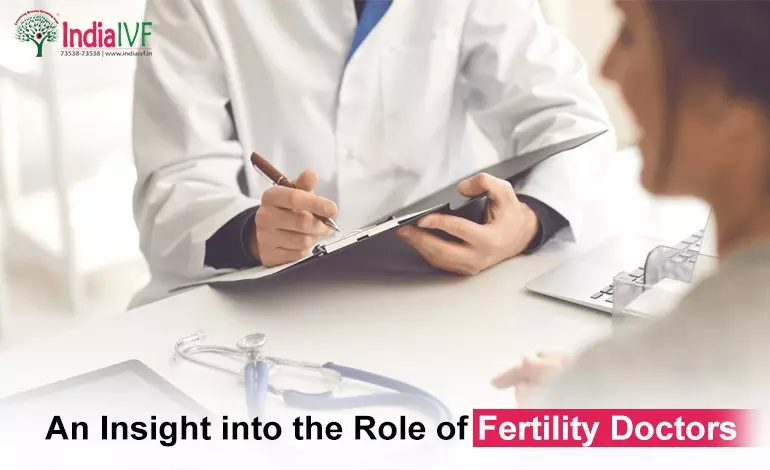Your cart is currently empty!



When nature throws a curveball in the path of childbirth, fertility doctors step in like knights in shining armor. Their mission is simple – to turn the dream of parenthood into reality for millions of couples across the globe. From the hustle and bustle of Delhi to the high-tech cityscapes of Noida and Gurgaon, the role of these ‘Miracle Workers’ is profound, and their stories of success are numerous at India IVF Fertility.
A fertility doctor, also known as a reproductive endocrinologist, is a physician who specializes in diagnosing and treating infertility1. Their expertise extends to managing complex issues related to reproductive health and providing solutions to help couples conceive.
An IVF specialist is a fertility doctor with specialized training in In Vitro Fertilization (IVF), a complex series of procedures used to overcome a range of fertility issues2. They’re the “behind-the-scenes” maestros, meticulously choreographing the process of egg retrieval, fertilization, and embryo transfer.
While both fertility doctors and obstetrician-gynecologists (OB-GYNs) deal with aspects of female reproductive health, there are crucial differences:
Fertility doctors wear many hats. Their roles and responsibilities include:
The arsenal of fertility treatments offered by fertility doctors is extensive and includes:
Fertility doctors, with their extensive knowledge and compassionate care, light the lamp of hope in the hearts of countless couples. Armed with advanced techniques and a patient-centric approach, they help bring dreams of parenthood to life.
If you've been trying to conceive for over a year (or six months if you're over 35) without success, or if you have known fertility issues, you should consider seeing a fertility doctor.
Research, reviews, and personal consultations can help you find the best fertility doctor in your area. India IVF Fertility, with its branches in Delhi, Noida, and Gurgaon, is known for its expert team and high success rates.
While fertility doctors strive to provide the best possible care, they cannot guarantee a successful pregnancy. Success rates depend on many factors, including the cause of infertility and the patient's age.
You can expect an in-depth discussion about your medical history, a physical examination, and initial tests to identify potential fertility issues.
The cost of fertility treatment varies greatly depending on the type and number of treatments needed. You should discuss this with your doctor or clinic for detailed information.
The length of treatment can vary depending on the cause of infertility and the type of treatment. Some couples conceive after a few months, while others may take longer.
Yes, lifestyle changes such as maintaining a healthy weight, eating a balanced diet, exercising regularly, quitting smoking, and reducing alcohol intake can improve fertility.
Absolutely! Fertility doctors specialize in diagnosing and treating conditions that can interfere with conception. They offer a range of treatments such as fertility drugs, surgical procedures, and assisted reproductive technologies like IVF to help patients achieve pregnancy.
While both are concerned with women's health, fertility doctors are trained to address infertility specifically. They provide treatments like IVF and IUI, which gynecologists typically do not offer. Conversely, gynecologists cover a broader scope, including prenatal care, delivering babies, and treating diseases of the female reproductive system.
If you've been trying to get pregnant for over a year (or six months if you're over 35) without success, it's advisable to see a fertility doctor. You should also see one sooner if you have known fertility issues or irregular menstrual cycles.
At India IVF Clinics we provide the most comprehensive range of services to cover all the requirements at a Fertility clinic including in-house lab, consultations & treatments.